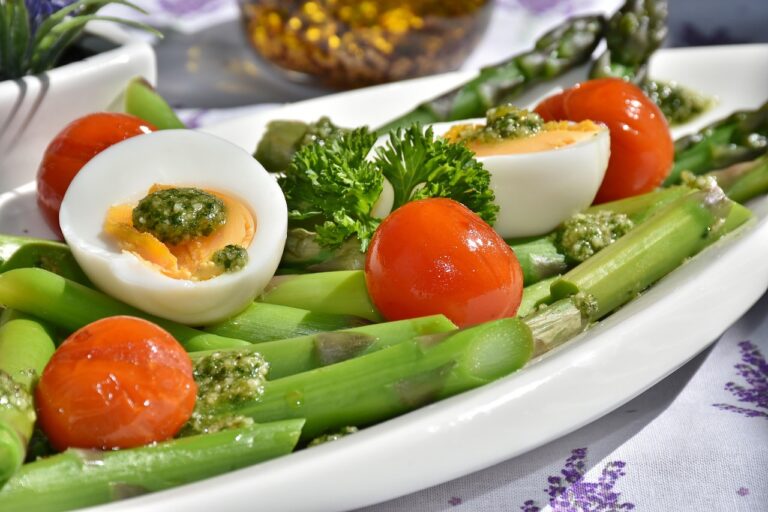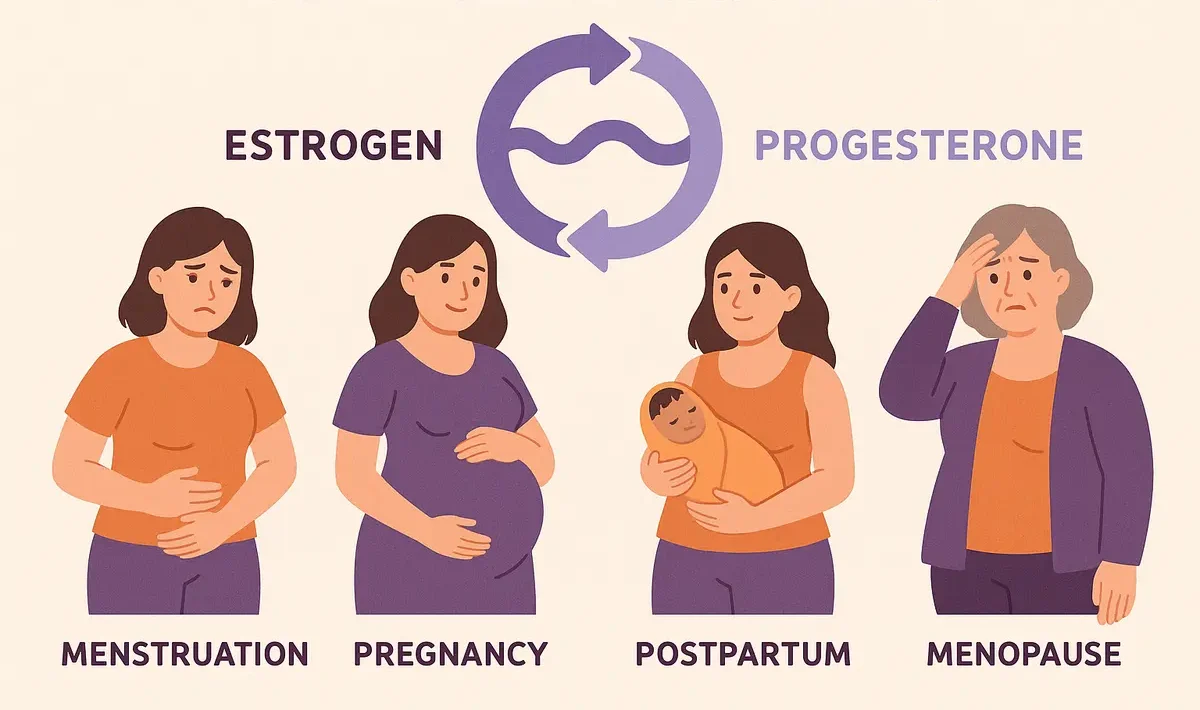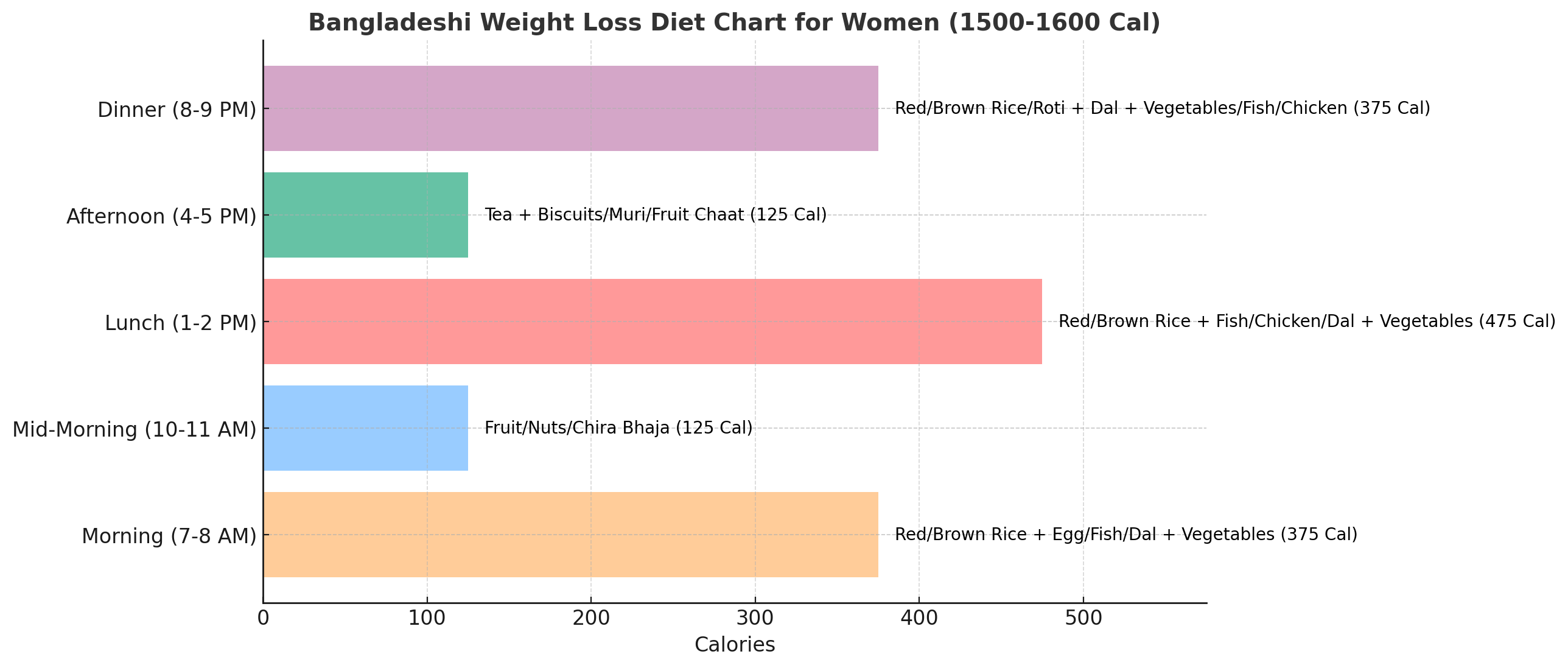A Practical Guide to Weight Loss for Bangladeshi Women – By Dietitian Sanjib Ahmad Talukder Tonoy ( B.Sc(Hon’s), M.Sc(Nutrition & Food Science), CND(BIRDEM), PGT(DELTA), Special Trained Infertility & Child Nutrition)
As a dietitian working with many women in Bangladesh, I understand the unique challenges you face when trying to lose weight. This guide is designed to empower you with practical strategies, a sample meal plan tailored to our local cuisine, and address common obstacles. I’ve created this resource to be as helpful as possible, but please remember: This information is for educational purposes only and should not replace personalized medical advice. Consulting a doctor or registered dietitian, like myself, is crucial before making significant dietary changes, especially if you have existing health conditions.
Bangladeshi Women’s Weight Loss Journey Starts Here
Many Bangladeshi women find navigating weight loss difficult due to our cultural food habits, busy lifestyles, and specific health considerations. I’ve seen this firsthand in my practice. This guide offers practical solutions and a supportive approach to help you achieve your goals.
Understanding Your Body: Key Factors for Bangladeshi Women
Several factors specific to us influence weight management:
Hormonal Changes
Hormones like estrogen and progesterone affect metabolism, fat distribution, and appetite. Fluctuations during menstruation, pregnancy, postpartum, and menopause can significantly impact weight.
Life Stages
- Reproductive Years (18-45): I often advise women in this age group to focus on iron, calcium, and folic acid. Managing conditions like PCOS, which can affect weight, is also important.
- Pregnancy and Breastfeeding: Increased nutrient needs are essential. I strongly recommend consulting a healthcare professional for personalized guidance. Addressing potential iron deficiency is also crucial during this time.
- Postpartum: Proper nutrition is vital for recovery and breastfeeding. I often work with new mothers to adjust traditional postpartum diets for healthy weight management.
- Menopause (45-55+): I advise women going through menopause to focus on protein, fiber, and calcium to manage metabolic changes, abdominal fat, and cardiovascular risk.
Cultural and Socioeconomic Factors
Our dietary habits, family responsibilities, access to diverse foods, and cultural views on body image all play a role in weight management.
Common Challenges
Balancing household duties, childcare, and often work outside the home can make it difficult to prioritize healthy eating and exercise. Stress and emotional eating are also common issues I address with my clients.
Building a Healthy Foundation: Core Principles
A successful weight loss plan is built on these core principles:
Calorie Balance
Consuming slightly fewer calories than you burn is key for weight loss. I always emphasize avoiding extreme calorie restriction, as it can be detrimental to your health.
Macronutrient Balance
- Protein: Essential for feeling full, maintaining muscle, and boosting metabolism. I recommend lean sources: fish (rui, ilish, tilapia, shing), chicken breast, eggs, dal (masoor, moong, chola, motor), beans (sheem, borboti), and nuts (badam, kaju).
- Carbohydrates: I encourage prioritizing complex carbohydrates: red/brown rice, whole wheat atta (roti, porota), oats, and vegetables. Limiting refined carbohydrates like white rice, maida (singara, shomosa, puri), and sugary drinks is also important.
- Healthy Fats: Important for hormone production and overall health. I advise including sources like mustard oil (in moderation), olive oil (if accessible), nuts, seeds (til, khor), and fatty fish (ilish).
Micronutrients
Vitamins and minerals are vital. I recommend eating a variety of local fruits (kola, am, kathal, peyara, jamrul) and vegetables (shak, begun, potol, kumra, data).
Hydration
I advise drinking 8-10 glasses of water daily. Including plain tea (without sugar) or lemon water is also a good way to stay hydrated.
Diet Chart for Weight Loss for Women: Bangladeshi Food Examples
This sample plan provides approximate calorie ranges. I recommend adjusting portions to fit your individual needs and activity level.
1500-1600 Calorie Sample Diet Chart for for Bangladeshi Women
| Time | Meal / Snack | Approx. Calories | Key Nutrients | Professional Tips |
|---|---|---|---|---|
| Morning (7–8 AM) | 1 cup red/brown rice or 2 medium roti (made with 1 cup atta) with 1 boiled egg or a small piece of fish or 1 bowl dal, plus plenty of vegetables (aloo bhorta, mixed vegetables, shak bhaji). | ~350–400 | Protein, complex carbs, vitamins, minerals | Prepare roti without excess oil. Adding a squeeze of lemon to dal enhances iron absorption. |
| Mid-Morning (10–11 AM) | 1 medium fruit (kola, peyara, apple, komola) or small handful of mixed nuts (badam, kaju) or a small bowl of chira bhaja (no sugar/oil). | ~100–150 | Vitamins, minerals, healthy fats | Choose seasonal fruits for better taste & cost. Lightly roast nuts instead of frying. |
| Lunch (1–2 PM) | 1.5 cup red/brown rice with 1–2 pcs fish/chicken or 1.5 bowls dal, plus plenty of vegetables (shak, begun bhorta, mixed veg, jhinga-aloo). | ~450–500 | Protein, complex carbs, vitamins, minerals | Include colorful vegetables daily. Minimize oil in bhorta preparations. |
| Afternoon (4–5 PM) | 1 cup plain tea (no sugar) with 2–3 whole-grain or low-sugar biscuits or a small bowl of muri with cucumber/onion or fruit chaat (no sugar/salt). | ~100–150 | Carbs, hydration | Replace biscuits with roasted chana or makhana for a healthier choice. Avoid spicy or salty additives in muri. |
| Dinner (8–9 PM) | 1 cup red/brown rice or 2 roti with 1 bowl dal & plenty of vegetables (lau, jhinga, potol, data chorchori) or 1 small piece fish/chicken or vegetable curry + roti. | ~350–400 | Protein, complex carbs, vitamins, minerals | Eat dinner early to improve digestion. Choose lighter curries with minimal oil and spices. |
Practical Tips for Long-Term Success
- Home-Cooked Meals: I always emphasize prioritizing home cooking with fresh, local ingredients.
- Healthy Cooking Methods: I recommend opting for boiling, steaming, grilling, or baking instead of deep frying.
- Oil Control: Using mustard or olive oil in moderation is important. I suggest measuring with a spoon.
- Limit Sugar: Reducing sugary drinks, sweets, and processed snacks is crucial.
- Local Produce: I encourage choosing seasonal and local fruits and vegetables.
- Regular Physical Activity: I advise aiming for at least 30 minutes of moderate-intensity exercise most days. Starting with simple activities like brisk walking is a great way to begin.
- Stress Management: Practicing relaxation techniques is important for overall well-being.
- Hydration Habits: I recommend carrying a water bottle and sipping throughout the day.
- Mindful Eating: Paying attention to hunger and fullness cues is key. I advise eating slowly and without distractions.
- Gradual Changes: I encourage making small, sustainable changes to your diet and lifestyle.
- Seek Support: Connecting with friends, family, or support groups can provide valuable motivation.
Your Health is Worth It
Sustainable weight loss is a journey, not a race. By understanding your body, adopting healthy habits, and making informed food choices, you can achieve your goals. Remember, it’s always best to consult with a healthcare professional, like myself, for personalized advice. Start today and prioritize your well-being! You can find more information from the Bangladesh Health Bulletin, the Ministry of Health and Family





